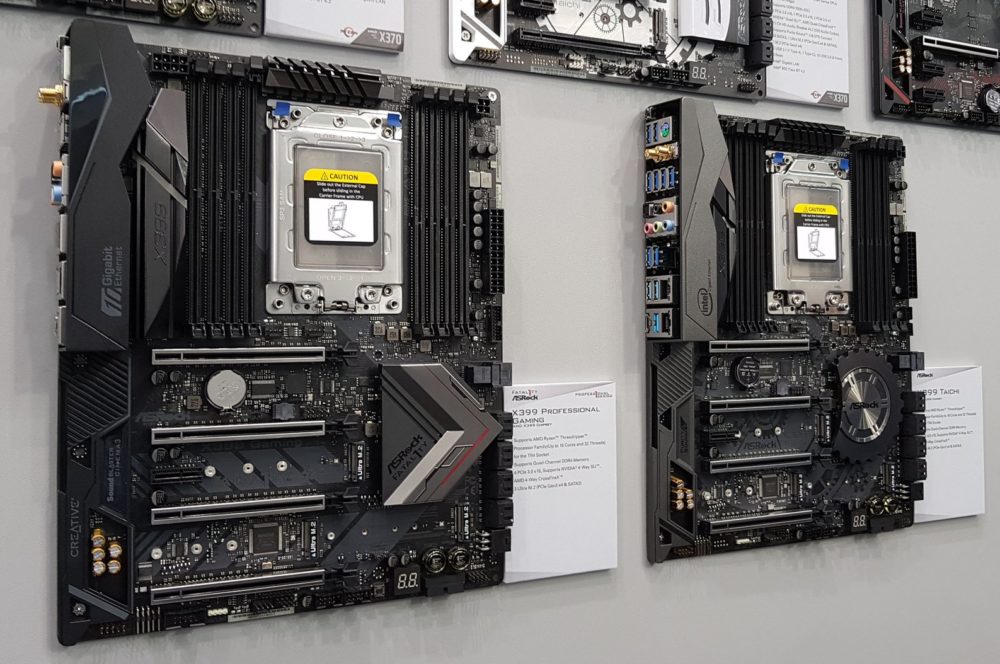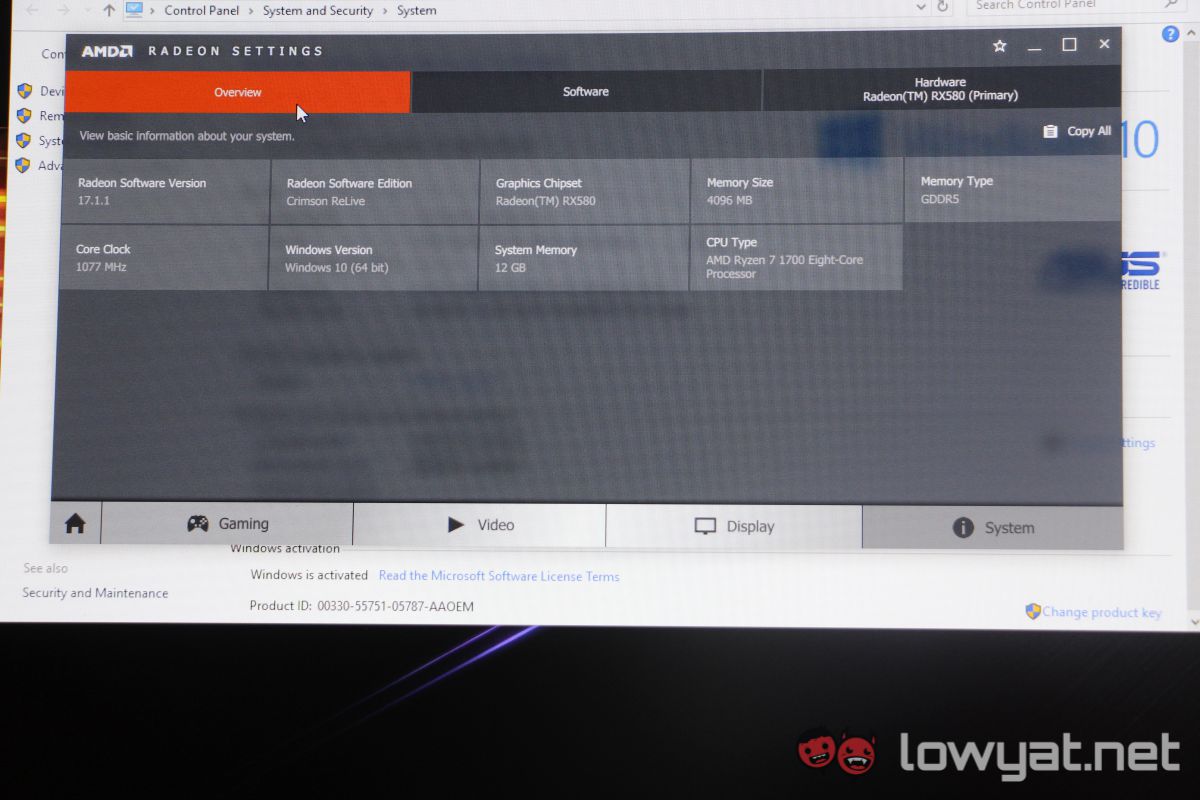Install the app
How to install the app on iOS
Follow along with the video below to see how to install our site as a web app on your home screen.
Note: This feature may not be available in some browsers.
Blazkowicz
Legend
Launching is what allows to work out the BIOS bugs, CPU bugs, microcode tweaks, OS scheduler tweaks, compiler bugs, at least in a good part. If anything, motherboard vendors gets "final" (as in version 1.0.0 of sorts) CPU silicon and a reason to do things other that from their good hearts.
What makes me think that is especially that they have the server CPU/platform coming after ; we've seen for years how Intel launches consumer CPU first, server CPU after that, though there it will be the same die, modulo a spin or stepping perhaps and microcode or firmware fixes/updates.
The sooner ugly stuff is fixed the better (like that bug where Windows 3.1 applications will crash among other things, we could say, who gives a crap, but somewhere there may be companies deploying Windows 10 32bit VDI to run some ugly leftover things from Windows 3.11 for workgroups days, or something weirder still)
In a way, deploying on beige tower desktop first does not entirely fit with that but it's very decent for mindshare, adoption and proofing it with a lot of hardware and software diversity ; there's been "Zen+" then on roadmap for a while that goes into low power mobile first like Intel did with Broadwell, Skylake and so on.
What makes me think that is especially that they have the server CPU/platform coming after ; we've seen for years how Intel launches consumer CPU first, server CPU after that, though there it will be the same die, modulo a spin or stepping perhaps and microcode or firmware fixes/updates.
The sooner ugly stuff is fixed the better (like that bug where Windows 3.1 applications will crash among other things, we could say, who gives a crap, but somewhere there may be companies deploying Windows 10 32bit VDI to run some ugly leftover things from Windows 3.11 for workgroups days, or something weirder still)
In a way, deploying on beige tower desktop first does not entirely fit with that but it's very decent for mindshare, adoption and proofing it with a lot of hardware and software diversity ; there's been "Zen+" then on roadmap for a while that goes into low power mobile first like Intel did with Broadwell, Skylake and so on.
Last edited:
Nah, still not GPU-bound. From a random 3333LL "bench scenario":
View attachment 1989
That's interesting, you'd think that if the game was CPU limited it would respond well to more mem b/w.
That's interesting, you'd think that if the game was CPU limited it would respond well to more mem b/w.
Yes, one could think like that. Anyways it's a 32% gain in fps (avg) just by tuning the memory settings (2133 vs 3400LL) so clearly it doesn't scale badly for memory. I don't know what's the limiting factor in W3's Novigrad where i tested it, since if i recall right, it's limited by CPU with intel as well. Right after if i walk away from the city gate the gpu usage jumps to 99-100%. I guess it's because of so many NPC's in the test area.
But it seems to be trend that after tuning the memory you gain ~30% more fps (vs 2133) if you were/are cpu-limited. So far i've seen this type of gain in Hitman, Witcher 3, AotS and Total War: Warhammer. Also Battlefield 1 seems to gain some good amounts. Haven't had time to test more titles.
That's interesting, you'd think that if the game was CPU limited it would respond well to more mem b/w.
No, you should not think that. Being CPU bound simply means that the bottleneck for the given workload's performance lyies in somewhere in the CPU department.
Any number of cpu "functions" could limit the measured performance (decoding, number of execution units, finite op queues etc).
Ryzen indeed appears to be limited by the memory system in a number of cases, in a significant proportion. Once that limitation is removed (which that 3200LL configuration seems to do) it is likely that the next bottleneck (or bottlenecks !) is exposed
AMD HEDT motherboard at computex ( from VC ) Caution, the socket is hudge.

http://news.mynavi.jp/articles/2017/05/30/computex07/


http://news.mynavi.jp/articles/2017/05/30/computex07/

So the prices for the i9s have been revealed, and they are better than I expected (2k for the 18 core part)! Although for whatever reason Intel is not soldering the HEDT parts:

We should have the prices for the Threadripper parts in the next 1-2 days, competition is good
Edit: Nixxes also released a Ryzen performance specific patch for Rise of the Tomb Raider: http://steamcommunity.com/app/391220/discussions/0/1290691308591626458/
Just tested the game, I'm seeing +25-35 fps (avg) in CPU limited scenarios.

We should have the prices for the Threadripper parts in the next 1-2 days, competition is good

Edit: Nixxes also released a Ryzen performance specific patch for Rise of the Tomb Raider: http://steamcommunity.com/app/391220/discussions/0/1290691308591626458/
Just tested the game, I'm seeing +25-35 fps (avg) in CPU limited scenarios.
Last edited:
AMD HEDT motherboard at computex ( from VC ) Caution, the socket is hudge.

http://news.mynavi.jp/articles/2017/05/30/computex07/

The socket is so massive, that there was no space left for a proper lever locking mechanism, just a bunch of screws. The VRM looks tightly squeezed too.
High turbo clocks are likely, but don't think AMD is able to maintain high base clocks, as Intel can't maintain high base clocks with high core counts either.
A 130W TDP Threadripper is just to R7 1700s on a die. I expect a 3GHz base clock and a 1800X-esque 4GHz boost clock (the higher TDP allows it).
Cheers
Anarchist4000
Veteran
Not only that, the dice likely consist of the top binned parts AMD created. Unlike a large monolithic die that is held back by the weakest link. They may actually exceed any part we've seen so far.A 130W TDP Threadripper is just to R7 1700s on a die. I expect a 3GHz base clock and a 1800X-esque 4GHz boost clock (the higher TDP allows it).
Cheers
The Asus laptop looks like it's running a 1700 + 580 
https://videocardz.com/70007/asus-rog-gl702zc-is-worlds-first-ryzen-powered-laptop

I didn't expect anything more than a 1600 to be honest.

https://videocardz.com/70007/asus-rog-gl702zc-is-worlds-first-ryzen-powered-laptop

I didn't expect anything more than a 1600 to be honest.
Last edited:
A 130W TDP Threadripper is just to R7 1700s on a die. I expect a 3GHz base clock and a 1800X-esque 4GHz boost clock (the higher TDP allows it).
Cheers
Actually 1998 is rumored to have 3.2ghz and 1998x 3.5ghz base clock. ( both are the 16 cores variant ). but they could well end at 3.3-3.4 and 3.6ghz respectively . ( and so on for the 12 cores variant ).
Ofc thoses are rumored clock speed ( from when they have been listed ).. so we should know better enough soon.
Now that we see that some performance was left on the table on the release ( this is worth too for professsional multi-threaded appliccations ), it will be interessant to see what happend with this release. ( chipset will be new too ).
Note they was 2 webinars meeting todays about threadrippers and one was for marketing retailers with Don Woligroski.. so things should go fast now..
Last edited:
When you're hotlinking videocardz, you need to remove the s from httpsThe Asus laptop looks like it's running a 1700 + 580
https://videocardz.com/70007/asus-rog-gl702zc-is-worlds-first-ryzen-powered-laptop
When you're hotlinking videocardz, you need to remove the s from https
Thank you, I fixed it
Similar threads
- Replies
- 85
- Views
- 16K
- Replies
- 90
- Views
- 18K
- Replies
- 220
- Views
- 93K




